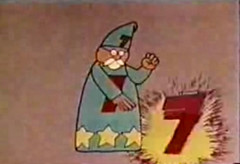What you can know about a thing only when the thing is there
is generally less well understood than what you can extract from the thing and translate and interpret and know even when the thing is gone, like what it says, means, is about, is like, is influenced by, colludes with, or refers to.
Hans Ulrich Gumbrecht, the author of Production of Presence: What Meaning Cannot Convey, wants to help us understand being there with the thing:
Hans Ulrich Gumbrecht, the author of Production of Presence: What Meaning Cannot Convey, wants to help us understand being there with the thing:
We know that, shortly after eight o’clock in the evening, the orchestra will begin to play an overture that we have heard many times. And yet the discontinuity that marks the moment in which the first sounds are produced will “hit” us—producing an effect of eventness that implies neither surprise nor innovation. (84)


2 Comments:
Hey Carl,
Here's Lindsay:
http://chronicle.com/free/v52/i17/17b00601.htm
Not the most well-thought-out essay in the world, but now that I'm hanging out in the world of contemporary academic litcrit I see what he's getting at.
It occurs to me that the orchestra is a very specific kind of experience in terms of culture, era, class; there are cultures where, say, music is far more integrated into daily life. Maybe he goes into something like this in the section on cultures of presence. Did you get to the part about the ecological politicians known as neoconservatives yet?
J.
In German-language Star Wars, "Vader" is pronounced "way-der." I do not know why this is, since German has a perfectly good vuh-sound. Maybe it's because German-speaking students of English have to learn to make the wuh-sound, and when they get an American cultural product they overgeneralize.
This quote is actually lifted from the section on cultures of presence (someone could build a presidential campaign around the ideal of a "culture of presence") . He means to distinguish a meaning-based notion of event (event as novelty or surprise, something specified in the mode of fashion or art history, a designation that is more semantic-textual than bodily-experiencial) from a presence-based one, where something you've experienced 1,000 times can still be experienced as discontinuity, change, reemergence, or whatever. I don't think much hangs on the orchestra example, though it is dramatic and easy to imagine. His point might be strengthened if it were cast in terms of something more everyday, how about nightfall or the dawn, that we are quite familiar with but whose perceptual/physiological effects exceed our expectations. (In a strict culture of meaning, one might say, "I do not need to experience the dawn; it has already been thoroughly understood.") What about going to the movies--the darkening of the theater is always my favorite part!
Post a Comment
<< Home